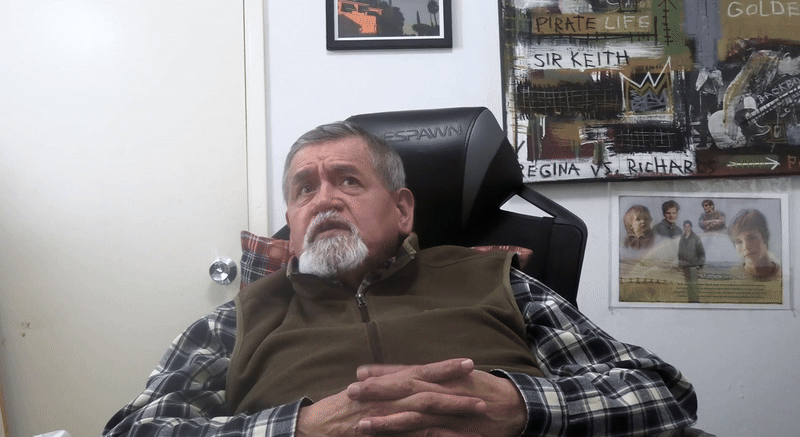STEVEN F. DANSKY
- The LGBTQ History Project
- Oct 2, 2023
- 4 min read
Updated: Oct 16, 2023
THE GAY LIBERATION FRONT, THE EFFEMINISTS

This excerpt features Steven F. Dansky, whom I should have interviewed two years ago when he first contacted me. When we started the interview, he gave me much support and reminded me that he had been waiting for an interview. “I don’t know why you waited so long.” I have to admit it was one of the best interviews I have conducted recently. Why? He made me think outside of my traditional understanding of Gay Liberation. He kept talking about how activism is taking care of people and dedicating your life to serving the downtrodden and disenfranchised. I do not know if I fully agree, but that’s fine! I was told by a gay liberationist recently that I’m “not a revolutionary.” Respect to that. Radical mover Lee Mentley once said, “We need activists, advocates, and administrators.” This interview was important to him as it was to me. I really related to everything he was saying. I am convinced that homosexuals exist for a reason and that assimilation is our greatest internal threat. —August Bernadicou, Executive Director of The LGBTQ History Project Steven F. Dansky was an early member of the Gay Liberation Front, the pioneering gay activist group founded in the aftermath of the Stonewall Rebellion. During his time in The Gay Liberation Front, he is most remembered for his time with the Effeminists. The Effeminists were a group that was more academic than a mass movement coalition recruiting for an anti-imperialist takedown. They were separate from the Gay Liberation Front and formed in response to the misogynistic views they alleged were present within the Gay Liberation Front. Before the Gay Liberation Front, gay homophile groups were separated by gender with little overlap. Men were in the Mattachine Society, and women were in the Daughters of Bilitis. While not all the Effeminist postulates align with our modern understandings, the group laid the foundation for future academics to build on. Of course, Steven did not stop with the Effeminist. During the HIV/AIDS crisis, he was a professional volunteer with Gay Men's Health Crisis (GMHC) and Body Positive. Currently, he is a frequent contributor to the Gay and Lesbian Review and serves as the Executive Director of both Outspoken: Oral History from LGBTQ Pioneers, interviewing more than one-hundred LGBTQ activists, and Outspoken: Documentary Films, which has won several awards.
“The Effeminist Manifesto was written in 1973, and now we're in 2023. Anyone who takes on writing a manifesto better be aware that it's going to be a burden because manifestos are not just writing an email to a friend or posting something on Facebook and social media. A manifesto is declaring a position and declaring the importance of the position being taken. I don’t think I knew at the time that it would be alive for 50 years and that people would still be addressing it. This manifesto has followed me all my adult life. I was 27 when it was written. So, the Manifesto really took on something that hadn't been addressed previously. We made a lot of mistakes in how we looked at gender because there was no research into transgender identity. Nothing existed. The term didn't even exist. I knew Marsha P. Johnson and Sylvia Rivera from Street Transvestites Activist Revolutionaries. Marsha never called me by my first name. I don't know why. She always called me Mr. Dansky. ‘Hello, Mr. Dansky.’ It was kind of odd, sort of mocking. We thought in the Manifesto and in feminism that we needed to question everything, whether it was cruising on the street, whether it was anonymous sex, whether it was formulations of gender, whether it was the male supremacy of the male left. It was very controversial. Later, I joined a psychotherapy practice that was only transgender, and that's when my views of transgender changed radically because I was faced with human beings trying to understand their gender identity, many of whom were transitioning. All of them were so different from any stereotypes we've thought of for years. I was faced with their humanity and struggle and how diverse transgender people are—my whole view shifted. I can't separate my political beliefs from people. I think I am becoming more audacious as I grow older. I have a very strong sense of mission, my purpose on this planet. It may have motivated through caregiving and doing childcare for Blake Morgan, son of feminist Robin Morgan and fellow effeminist Kenneth Pitchford. And now, as a caregiver for my husband, Barry Safran, who’s on dialysis. Thankfully, I'm not phobic about blood or needles because I'm handling blood and needles every day. When I monitor his home hemodialysis treatment for three hours, five days a week, I have a very strong sense of purpose. What is my mission? My mission is to keep him alive as much as is within my power. True activism is about lifegiving, creativity, and love. That's activism. That will make social change."





Comments